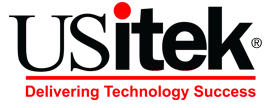 Is having the best computer for your small business really that necessary? The answer is a resounding yes. Given the changes in the business environment, entrepreneurs are fiercely competing for a place in the hearts of consumers. And that requires having the right kind of computers. If you truly want the best for your business, read on to find out how to select the best computers that can help make your business thrive.
Is having the best computer for your small business really that necessary? The answer is a resounding yes. Given the changes in the business environment, entrepreneurs are fiercely competing for a place in the hearts of consumers. And that requires having the right kind of computers. If you truly want the best for your business, read on to find out how to select the best computers that can help make your business thrive.
Laptop or desktop?
Laptops are highly portable, efficient, and inexpensive. If these are the most important qualities your business requires in a computer, then by all means, choose them. Clearly, desktops aren’t built for mobility, but what they lack in portability, they more than make up for in storage, processing capacity, and security. Although laptops make perfect sense for small businesses with great need for portability, they are much more prone to security threats and are not as easy to upgrade and maintain, unlike desktops.
Processor
The Central Processing Unit (CPU), or simply processor, determines the speed at which you can access your data and perform business-critical tasks. Speed is measured in Gigahertz (GHz), and a processor that runs from 2 to 4 GHz should be plenty for small enterprises. Arguably the most important item on the list of a computer’s specifications, the processor plays a crucial role in your computer’s speed and efficiency.
Storage
As critical hardware components, hard drives indicate how much information you can store and use. Storage capacity typically ranges from 128 gigabytes on “light computers”, all the way up to 2+ terabytes on more critical machines. If your business doesn’t need to store large files such as videos and images and will be used mostly for email and a few applications, 250- or 500-GB storage should do the job. If processor speed is number one on your list of computer requirements, it’s followed closely by hard drive storage.
Operating System
Operating system (OS) decisions often boil down to choosing between Windows or Mac. It might help in your decision-making to know that Windows remains the most widely used OS mainly due to its high compatibility with business software, not to mention, its relatively cheaper price. Macs can perform just as brilliantly as Windows-operated systems can. And although Macs are usually more expensive, they’re well known for their own outstanding features, such as being less prone to crashes.
Other Components
Not to be confused with storage drives, a computer’s Random Access Memory (RAM) is only used to run open applications. It is responsible for keeping your computer performing at optimum speeds, especially when you’re working with several applications or programs at once. For small businesses, a 1200-2600-MHz RAM should suffice. The higher the MHz of your RAM, the higher its performance will be. To keep your basic programs running, 6-8 gigabytes of RAM is often satisfactory.
Ready to Buy a New Computer?
Deciding which computer to buy is an important business decision. While there are a handful of factors to consider, what you aim to accomplish in your business’s day-to-day operations should be your main consideration when choosing a computer. Businesses that require plenty of remote and mobile work should definitely go for laptops. Those that require regular transfers of large datasets could benefit from the increased storage capacity associated with desktops.
Do you need expert advice in choosing the best computers for your small business? We’re happy to guide you in every step of your purchase decision. Give us a call today.

You must be logged in to post a comment.